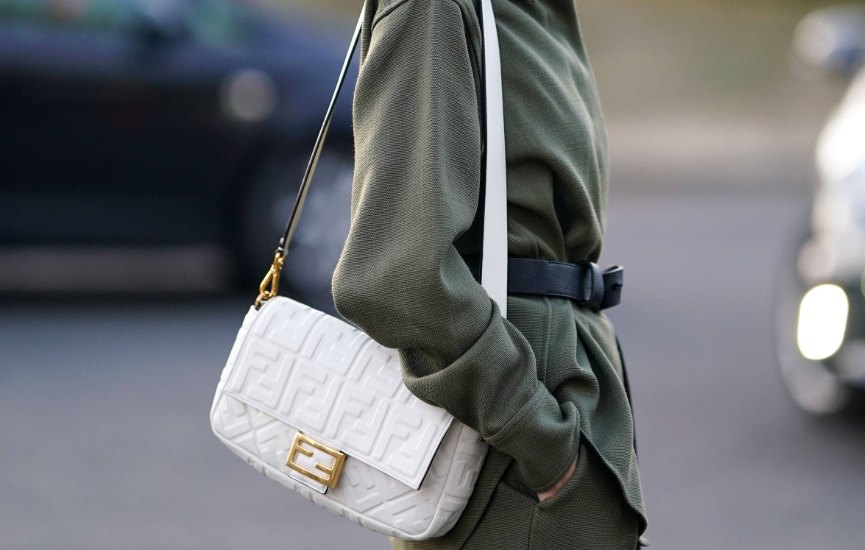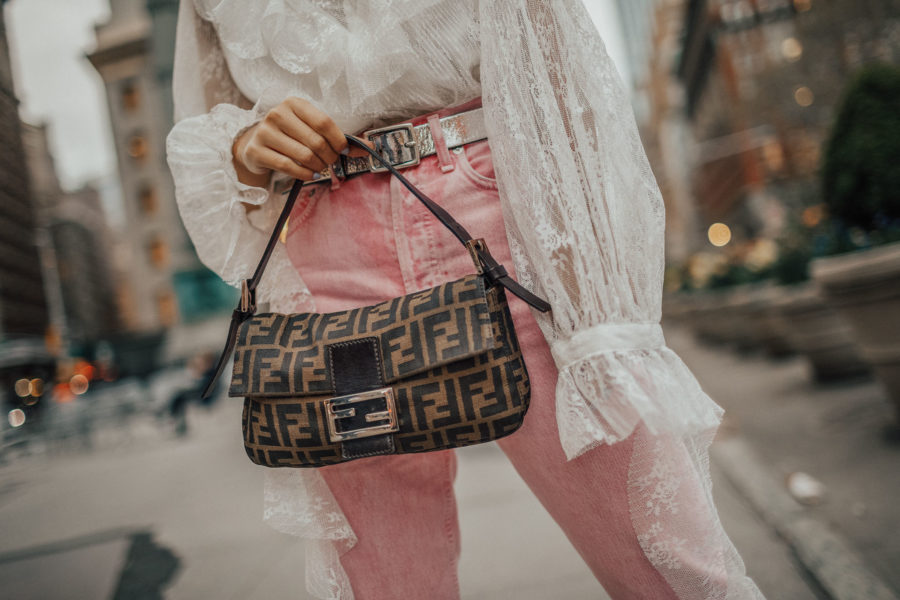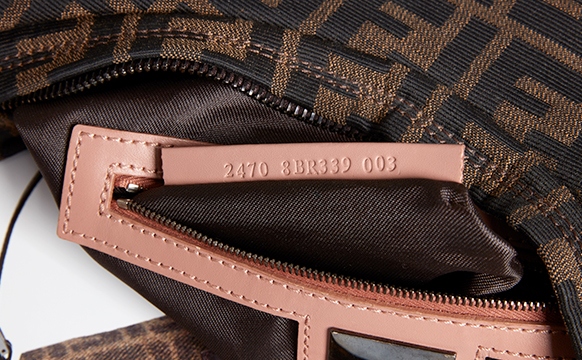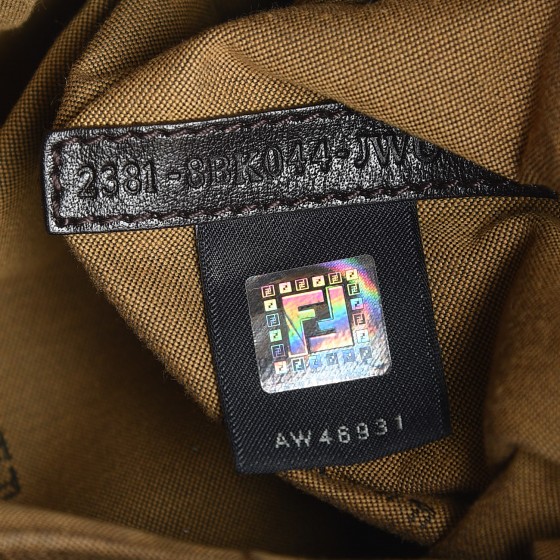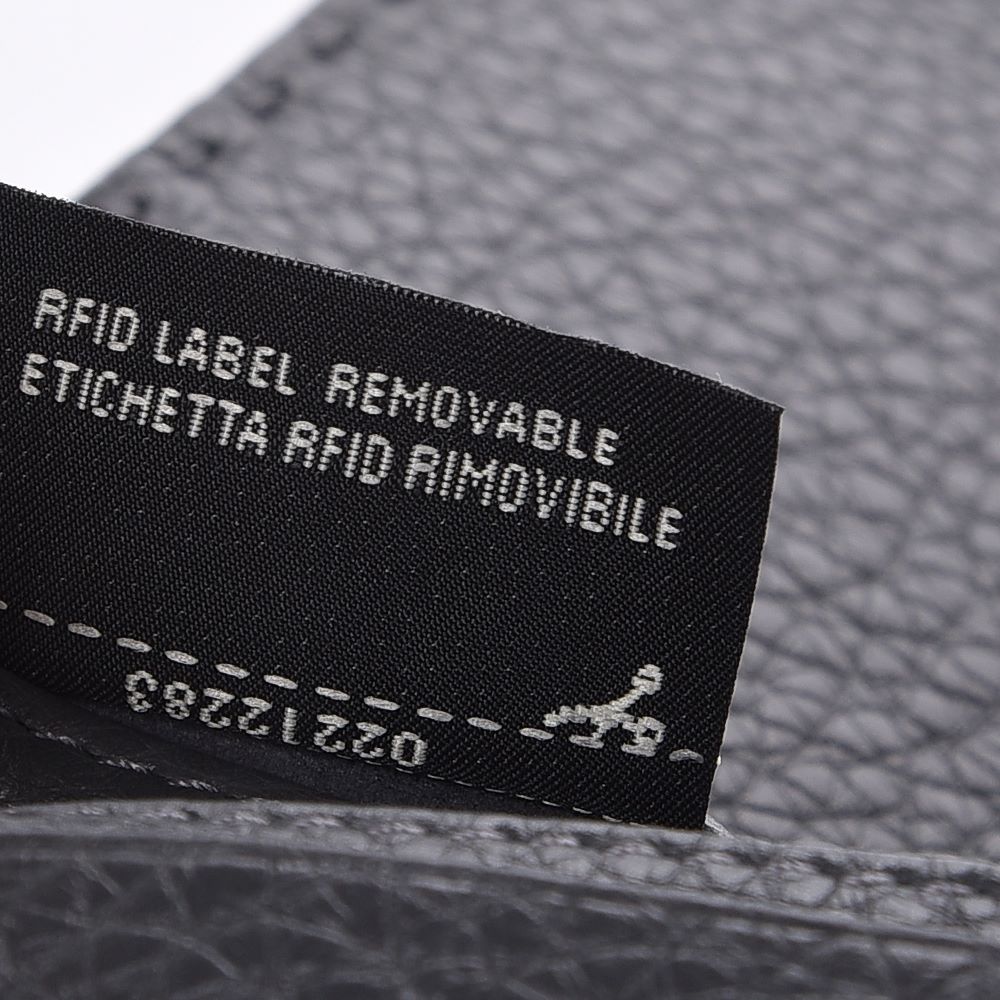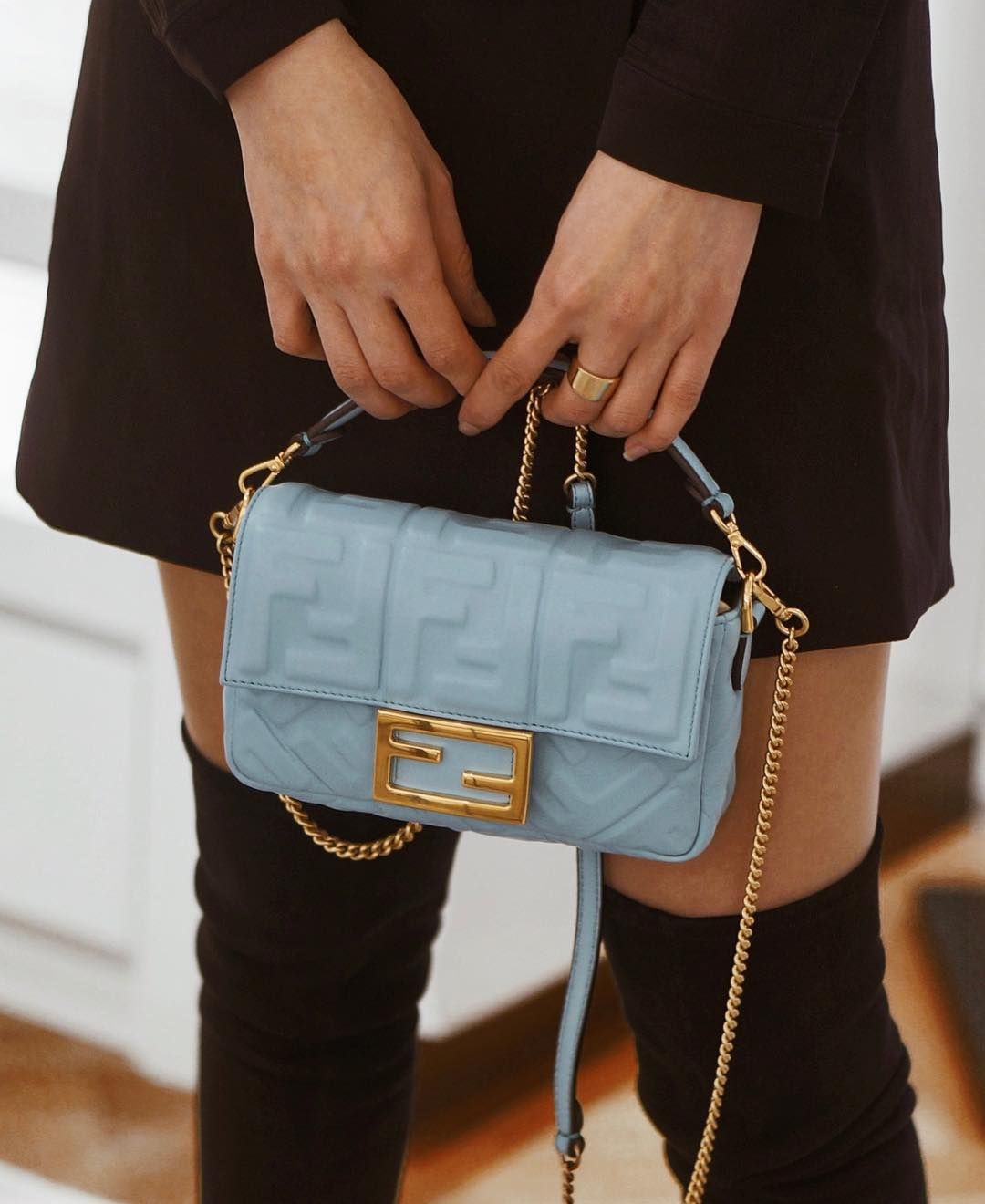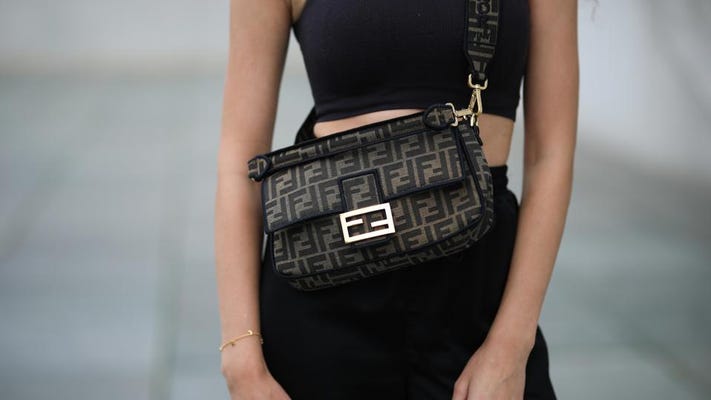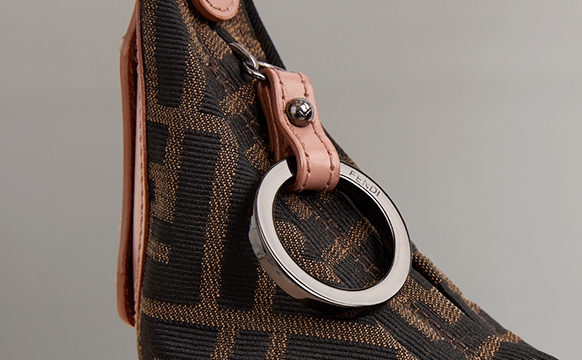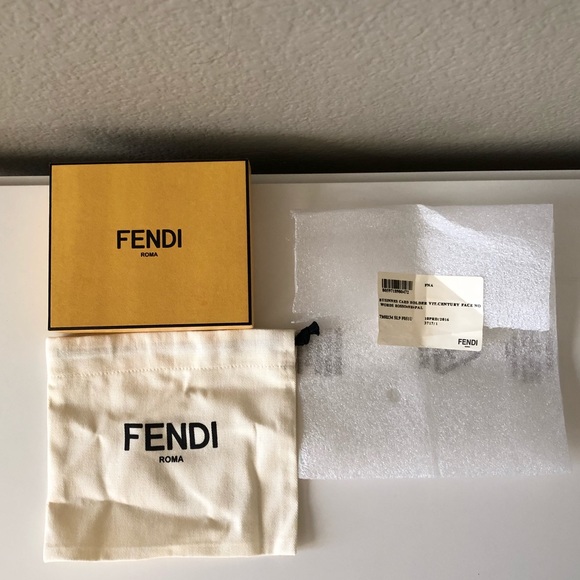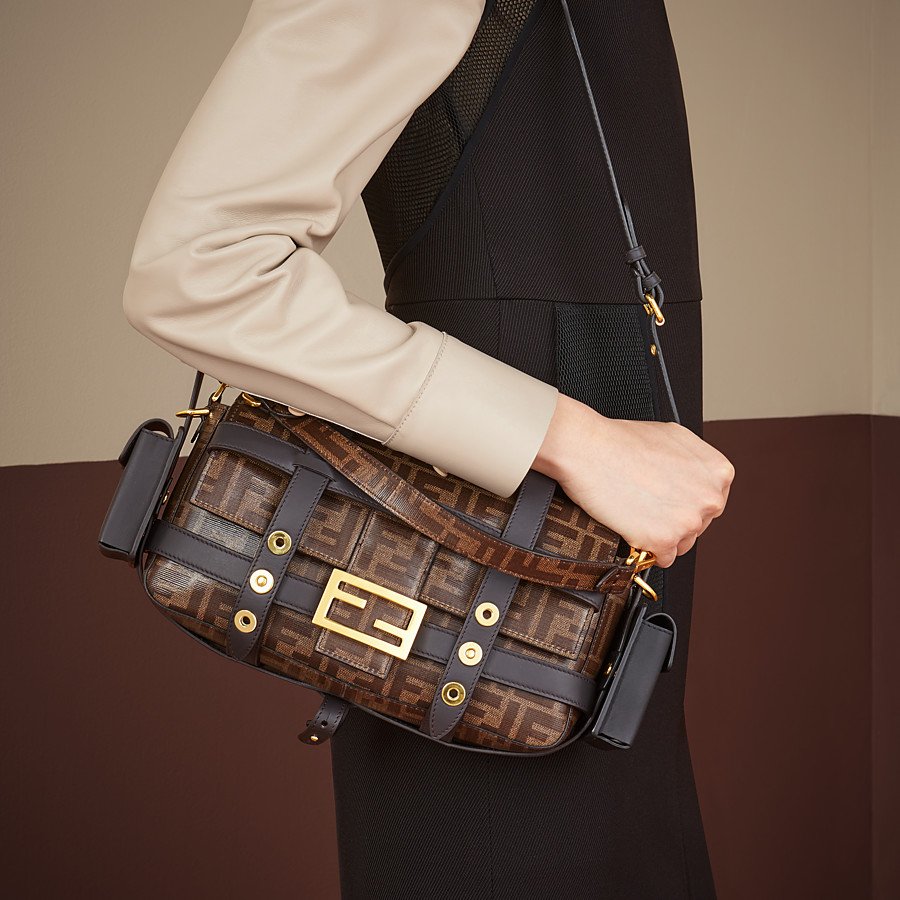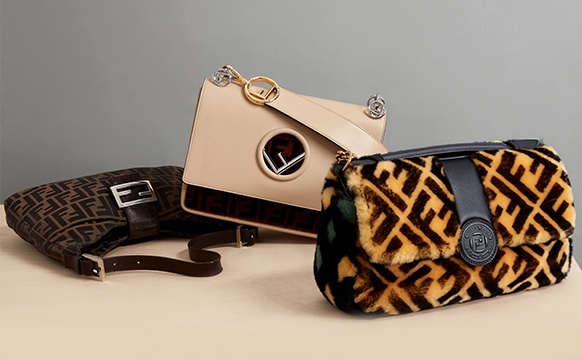How To Authenticate Fendi Handbags

The house of Fendi was founded in Rome in 1925 and is well-known for its fabulous fur, ready-to-wear fashion, leather goods, shoes and much more. But even this leading fashion house encounters copycat manufacturers. Try as they might, these counterfeit producers cannot replicate the quality and craftsmanship of an authentic Fendi item.
To help you distinguish what’s real and what’s not, we’ve compiled a list of steps taken by our very own authentication team to determine the authenticity of a Fendi bag. Keep reading and never get bamboozled again!
The Quality of Leather
It’s easy to tell the authenticity of a leather Fendi bag as it’s ALWAYS made from high-quality leather. This high-class material should be firm enough to stand up on its own without bending or creasing. Another dead giveaway is the scent of the bag’s materials. Anyone who has encountered authentic designer bags knows that it smells clean and leathery. On the contrary, replicas use cheap materials such as fake leather and chemical glues that produce an unpleasant smell, which is hard to stand.
More Fendi Materials
Other Fendi handbags such as the Zucca monogram tote is crafted with the brand’s signature jacquard canvas.
As mentioned previously, authentic designer bags are made with world-class craftsmanship. Hence, weaves of the jacquard materials should be perfect, not loose or pixelated.
The interior lining should not be printed but rather plain canvas instead. Nor should it match the exterior print.
Fendi Serial Number
All Fendi bags made after the 1980s have a serial number. It’s either embossed on the back of a leather tag or on a narrow leather tag, sewn into the seam in one of the corners or pockets. The label inside should read ‘FENDI Made in Italy’. This serial code consists of an alpha-numeric serial number, separated by dashes and consisting of 15 to 17 digits that are identical to the number on the bag’s authenticity card.
Holographic Tags
In order to protect the brand’s integrity and battle against counterfeiting, Fendi introduced holographic foil stickers in 2004. This detailed sticker is attached to the fabric tag and accompanies a serial number.
RFID Tags
However, counterfeit manufacturers only assimilated this style into their fake designs. So, in 2011 Fendi took it a step further and incorporated RFID (Radio Frequency Identification) tags sewn into the label (never printed). These tags contain detailed information about the production, origin as well as a chip inside the pouch. Replicas will not have this feature – so be sure to look out for this detail.
If the bag does not contain any of these features, you could be looking at a cheapie. However, keep in mind that these serial codes were only introduced in the 1980s, so vintage Fendi bags may not include this detail. In that case, refer to the other steps and do more research into the specific item. Alternatively, you could contact Fendi directly.
Authentic Fendi Hardware
Another telltale sign of authentication is the level of quality of the handbag’s hardware.
Regardless of the model you’re inspecting, there is an obvious quality found in the hardware of an authentic bag.
FF Hardware
Authentic Fendi’s FF clasps are made of either heavy-duty nickel, brass or nickel plating. This smooth and shiny hardware should represent the logo in an elongated, rectangular shape. The F’s should be flipped vertically and horizontally simultaneously, not parallel.
Other Hardware
Most Fendi handbags contain embossed hardware in multiple places, including but not limited to:
- Clasps
- Studs
- Straps
- Rings
- Stud closures
- Zippers (containing branding on both sides)
- Snaps
- Screws
- Buckles
The hardware should be branded with ‘FENDI’ or ‘FF’ engraving. If you’re inspecting a bag post-2003, look out for FF zips on their interior pockets or on bags with zip closures.
However, counterfeit manufacturers may try to fool you with poorly designed embossing or stamping on exterior hardware. Keep in mind that the plaque must also be the same colour as the rest of the bag’s hardware.
Additionally, all locks should fasten and turn smoothly on an authentic Fendi purse. While zips should contain the Fendi logo on both sides. Exterior zippers will also have metal YKK zippers rather than cheap plastic.
Authentic Models
As silly as it sounds, you need to research whether the item even exists. These days, counterfeiters have taken it upon themselves to invent new models under the guise of popular luxury labels, like Fendi.
If you’re sceptical about certain bag styles, don’t be afraid to visit the authentic Fendi website or social media pages to make sure.
Authentication Cards & Packaging
Now, if you’re buying pre-owned items, you may not always have access to the original paperwork and all packaging. However, if you are lucky enough to get your hands on any extras, be sure to inspect them closely.
Paperwork
Brand new and authentic Fendi bags come with paper cards that contain the same serial number hidden inside the bag. This paperwork also includes the model, colour and barcode.
Although this card is referred to as a Fendi authenticity card, it’s essentially just a paper tag along with a care booklet. Moreover, cards and paperwork are always found inside the bag (usually the inner pocket), never attached or hanging from it.
Modern paperwork is grainy and off-white while older bags come with yellow papers. Lastly, make sure you pay attention to the font and quality of the papers too.
Packaging
Authentic Fendi bags come in a yellow carton box, containing stickers with the item’s model, serial number and other relevant information.
Newer dust bags are also made with white canvas, black string and black logo text. Conversely, older models come with yellow dust bags.
Stitching
Authentic Fendi pieces have pristine stitching that’s evenly spaced with each and every thread sewn neatly in its own place. Unlike cheapies that have uneven, thick and bulky stitching. Moreover, the thread colour will always be the exact same colour as the material.
If you’re examining an item, make sure to check the stitching around the tags, ends of the straps, corners and especially in the hidden compartments.
The Price Tag
Always remember that authentic designer items don’t come cheap.
If it sounds too good to be true, it probably is! You’ll never find a brand new R2,000 Fendi handbag – even in the pre-owned industry! So, if you find a bag that’s selling for far less than the listed retail price, be wary and make sure you aren’t being fooled into buying a dupe.
Where you find an item is also significant. If you’re looking for authentic luxury items in sketchy shops or questionable websites, then you can expect nothing but low-quality fakes for unnecessarily high prices.
Where to Buy Authentic Fendi Bags
Unfortunately, there aren’t any brick-and-mortar Fendi stores in Africa. That’s why many fashionistas turn to trusted designer resellers like Luxity. All of our items go through a strict authentication process and are 100% the real deal. In fact, each item is accompanied by our lifetime return policy. If you can prove that any item is counterfeit, we will grant you a full refund – including delivery costs.
So, whether you’re buying or selling Fendi items, choose Luxity!
[products category=”fendi” columns= “3” Limit=”6″ order=”Desc” orderby=”date”]
